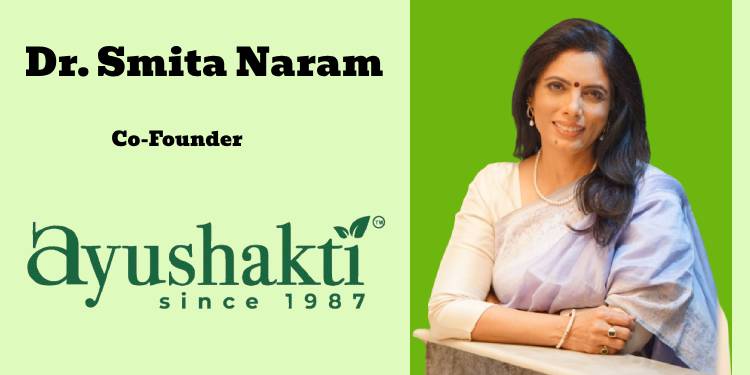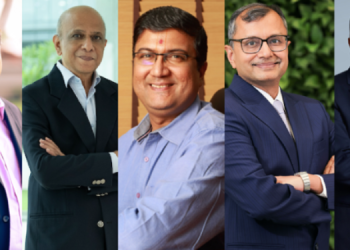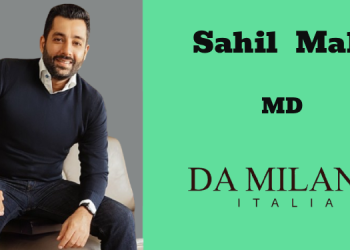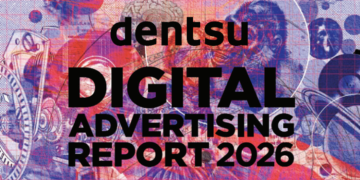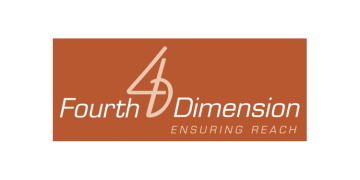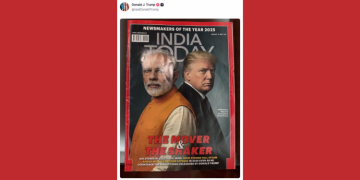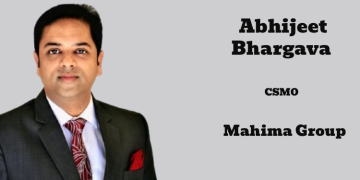Ayushakti, an Ayurvedic health centre that was Co-Founded by Dr. Smita Pankaj Naram in 1987. Today, the company has a presence across the globe and has played an integral role in promoting Ayurveda across the globe including Asia, the US, Australia, New Zealand, Europe, and the UK.
As a 37-year-old heritage brand, Ayushakti today is using new-age marketing mediums like social media, influencer marketing, and PR activities along with traditional print ads.
Medianews4u.com caught up with Dr. Smita Naram Co-Founder at Ayushakti
Q. From a marketing perspective, what are the priorities and goals of Ayushakti in 2025?
In 2025, our marketing focus is on global expansion, strengthening our presence in the US, the UK and Europe through practitioner partnerships and Pulse Reading training.
Digital growth remains a priority, with website optimisation, SEO-driven content, and improved user engagement.
We will be building our latest centre in Goa to position it as a premium wellness destination. Here, at Goa, we are also coming up with a Health Village to give our customers the best experience, leveraging travel influencers and collaborations to attract international visitors.
Our education summits and training efforts will expand with more Pulse Reading programmes and Ayurveda workshops. Social media and influencer marketing will play a key role in brand awareness, particularly on Meta Platforms, YouTube, and LinkedIn.
Lastly, all marketing efforts will ensure regulatory compliance, avoiding medical claims while emphasising Ayurveda’s holistic benefits and wellness approach.
Q. What trends does Ayushakti expect to see in healthcare marketing in 2025?
In 2025, healthcare marketing will shift toward personalised wellness, with a stronger focus on data-driven treatments and integrating Ayurveda with modern healthcare for a more holistic approach.
Influencer and community-driven marketing will take centre stage, emphasising authentic and real testimonials. Digital transformation will continue, with AI-powered tools to minimise human interference and offer personalized Ayurvedic care after the Vaidya’s consultation.
Wellness tourism, particularly Ayurveda-based retreats, will see significant growth. Consumers will prioritise sustainability and ethical practices, while telemedicine and wellness apps will make Ayurvedic services more accessible, personal, and globally available.

Q. Is misleading advertising a challenge in the healthcare sector? Patanjali has run into trouble a few times.
Yes, misleading advertising is a significant challenge in the healthcare sector or I would say any brand whether it is FMCG, Clothing, Food Industry, etc should never put their customers at risk of half knowledge, wrong information or unverified claims about the effectiveness of their products.
Such advertising can not only damage a brand’s reputation but also mislead consumers, potentially leading them to make health decisions based on inaccurate information.
The regulatory environment for healthcare advertising is stringent, especially in markets like the US and Europe, where companies must avoid making medical claims unless supported by scientific evidence. This emphasises the need for transparency, honesty, and compliance in healthcare marketing, ensuring that claims made are both responsible and backed by credible evidence.
Q. Could you talk about what the media mix will look like in 2025 for Ayushakti and the industry?
In 2025, Ayushakti’s media mix will focus heavily on digital platforms like Instagram, YouTube, and LinkedIn, using influencer partnerships, educational videos, and live sessions to engage with a health-conscious audience. SEO-optimised content such as blogs, podcasts, and webinars will drive organic traffic, while health apps and AI-driven tools will offer personalised Ayurvedic recommendations and virtual consultations.
Wellness retreats in Goa will be promoted through both digital and physical channels, with user-generated content and community-focussed campaigns further amplifying the brand. Traditional media like TV and radio will still play a role, particularly in reaching older demographics.
Sustainability and ethical marketing will also be central, highlighting Ayushakti’s commitment to eco-friendly practices and transparency. This blend of digital innovation, content marketing, and traditional media will create a comprehensive strategy to connect with global audiences.
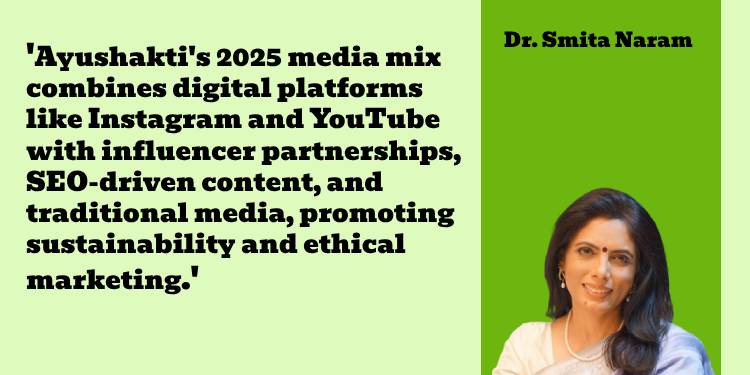
Q. To what extent will marketing activities be about building Ayurveda as a holistic tool?
This year in 2025, our marketing activities will focus on addressing modern-day health challenges such as stress, depression, neuro issues, PCOS, joint pain, skin problems and gastritis through the power of Ayurveda.
Our approach will highlight Ayurveda’s holistic treatments, particularly Panchakarma therapies, as effective solutions for these conditions. Marketing efforts will be around educating consumers on how these ancient therapies can help restore balance to the mind and body, offering relief from chronic stress, hormonal imbalances, digestive disorders, and mental health issues.
Our campaigns will emphasize the preventive and restorative nature of Panchakarma, showcasing real-life success stories and expert testimonials. By positioning Ayurveda as a natural, sustainable alternative to modern medicine for these prevalent issues, Ayushakti will attract a wider audience seeking long-term, holistic wellness solutions.
Q. Ayushakti appointed Treize Communications last year to handle PR. What role does PR play in adding value and benefits for a consumer-facing brand?
Investing in our PR activities has added a lot of authenticity and built trust amongst the audience because PR is key in helping brands like Ayushakti build trust and recognition.
We got Ayushakti as a brand featured in newspapers, magazines, and health blogs, which helps people learn about Ayurveda and how it can solve modern health problems.
By sharing success stories and expert opinions, PR makes the brand feel more trustworthy and authentic to consumers. It also helped spread the word about Ayushakti’s services, making the brand more visible to potential customers. Essentially, PR helped create a positive image, making people more likely to trust and choose Ayushakti for their wellness needs.
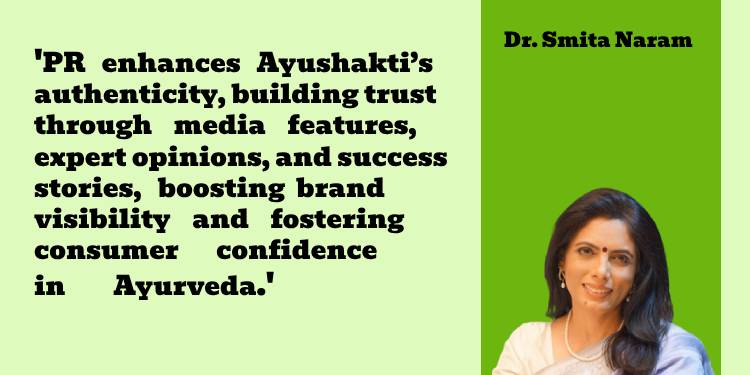
Q. Which are the key markets and TGs that Ayushakti will focus on for growth in 2025?
In 2025, Ayushakti will focus on key markets such as the United States, Europe, India, UK to expand more by giving out franchisees, all of which are growing in demand for holistic health solutions.
Our target audiences will include senior citizens, health-conscious Millennials and Gen Z, busy professionals seeking stress relief, women with hormonal imbalances like PCOS, and individuals dealing with chronic conditions like gastritis and neuro issues.
Additionally, wellness tourists looking for Ayurvedic retreats will be a key focus, particularly in Goa. By addressing these diverse needs, Ayushakti aims to expand its global reach and offer natural, effective wellness solutions.
Q. What role will print play for Ayushakti and for the healthcare sector in 2025?
Print will continue to serve as a platform for educating consumers about health issues, treatments, and preventive care, while also providing space for in-depth articles, expert opinions, and case studies. It will also be useful for reaching older demographics who may not be as engaged with digital media.
Q. How will Ayushakti leverage AI in 2025 to identify market gaps, improve products and finetune marketing?
In 2025, Ayushakti will use AI to identify market gaps by analysing consumer behaviour and trends, helping to spot emerging health needs. AI will also improve products by analysing customer feedback and predicting effective ingredient combinations.
In marketing, AI will enable personalised experiences, tailoring messages and offers based on individual health needs, and optimizing campaigns for better engagement. Additionally, AI-driven chatbots and virtual assistants will enhance customer experience by providing instant support and personalised wellness guidance. This will help Ayushakti refine its strategies and grow more effectively.
Q. How important will influencer marketing be for Ayushakti and the healthcare category in 2025? Is authenticity a challenge for this marketing medium?
In 2025, influencer marketing will be crucial for Ayushakti and the broader healthcare category. As consumers increasingly turn to social media for health advice, influencers, particularly in the wellness and Ayurveda space, will be key in building trust and driving awareness. For us, partnering with influencers who align with the brand’s values can help promote Ayurveda as a holistic and effective solution for modern health issues like stress, PCOS, and chronic conditions.
However, authenticity will remain a challenge. With the rise of influencer marketing, consumers have become more skeptical of sponsored content, especially in the healthcare sector, where misinformation or exaggerated claims can be harmful.
To address this, we will be collaborating with influencers who genuinely believe in Ayurveda’s benefits and can share personal, relatable experiences. This will help maintain credibility and ensure that the message resonates authentically with its audience, fostering long-term trust and brand loyalty.
Q. Could you offer examples of micro-influencer activities done?
In the past year, we conducted 4-5 influencer activities each month, and the response was tremendous. We saw a significant increase in awareness among the younger audience, many of whom encouraged their parents to visit.
Our signature Stress Relief package became so popular that it was almost fully booked every weekend. The primary goal of our micro-influencer activities wasn’t just visibility, but to spread awareness and engage with a broader audience, and we achieved just that.
We partnered with local influencers like Things to do in Mumbai, Vritti Khawani, Touristtotravellers’s Naved & Jesal, Celebs like Prathamesh Parab, Aishwarya Pewal, etc
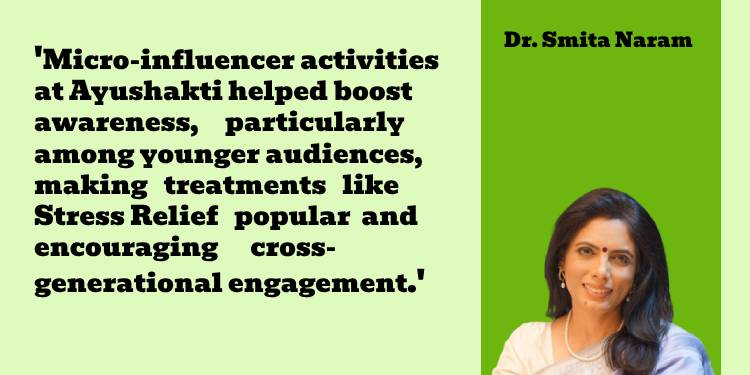
Q. Besides India, which are the other key markets that Ayushakti will focus on for growth like the US, the UK, Europe?
Besides India, Ayushakti will focus on key markets like the US, the UK, and Europe for growth. These regions are seeing a growing interest in holistic health and wellness, with consumers increasingly turning to Ayurveda for natural and sustainable solutions to modern health challenges.
The US, in particular, offers a vast market for wellness products and services, while the UK and Europe are becoming more receptive to Ayurvedic therapies, especially for stress, hormonal imbalances, and chronic conditions. These markets, combined with Ayushakti’s focus on wellness tourism and Panchakarma, present a strong opportunity for expanding the brand’s global reach in 2025.

